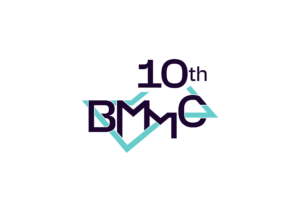A Brief History of the BMMC – from the Baltic
to the Biennial Meeting on Microbial Carbohydrates
Beginning in 1988 until 2001, several meetings dedicated to the chemistry and biochemistry of carbohydrates were held annually at the Research Center Borstel and the University of Rostock, Germany. These conferences created a platform that encouraged presentation of studies performed by young researchers from the above institutions, and by colleagues from other institutions in Eastern Europe that were invited to attend.
In 2001, it was agreed to merge both symposia to form The Carbohydrate Workshop, which took place annually, alternating in Borstel and Güstrow. Each meeting focused on different themes. These in Borstel (2002, 2004) were devoted to the research on natural products and medicinal chemistry of mostly microbial carbohydrates, while the meetings in Güstrow (2001, 2003) centered around the synthetic carbohydrate chemistry. In 2000 a second platform for the exchange of the latest knowledge in carbohydrate chemistry and biochemistry emerged as the German-Polish-Russian Meeting on Bacterial Carbohydrates, with the initial symposium held in Borstel, Germany. In 2004, during the third meeting in Poland, the organizers agreed to merge The Carbohydrate Workshop and the German-Polish-Russian Meeting to form the biennial Baltic Meeting on Microbial Carbohydrates (BMMC). It has also expanded geographically, to inspire a wider community of researchers in a field of carbohydrates and microbial glycans as well as to share their expertise. To conform to this geographical expansion, as of the 9th BMMC the acronym expansion has been modified, and it stands for Biennial Meeting on Microbial Carbohydrates.
Conforming with the tradition, the BMMC agenda covers and attempts to explore several areas of microbial carbohydrates, spanning from structural chemistry, biochemistry, synthesis, biosynthesis to activity and protein-carbohydrate interactions. To avoid unnecessary limitations, the term “microbial” takes the broad sense of the word, indeed it is comprehensive of bacteria, viruses, archaea and microalgae, and whatever organism is in the micron range. This rich portfolio is typically complemented by reports and exchange of competence concerning the use of state-of-the-art techniques in the study of all sorts of glycans as well as the development of computational tools and databases to support the carbohydrate community.

1988-2000
Borstel & Rostock, Germany
Chair: Otto Holst & Christian Vogel
2000
Borstel, Germany
Chair: Otto Holst
2002
Moscow, Russia
Chair: Yuriy Knirel
2004
Wroclaw, Poland
Chair: Andrzej Gamian
2006
Rostock, Germany
Chair: Christian Vogel
2008
Sigtuna, Sweden
Chair: Elke Schweda & Stefan Oscarson
2010
Hyytiala, Finland
Chair: Mikael Skurnik
2012
Suzdal, Russia
Chair: Yuriy Knirel
2014
Gdańsk, Poland
Chair: Zbigniew Kaczynski
2016
Rostock, Germany
Chair: Christian Vogel
2018
Dublin, Ireland
Chair: Stefan Oscarson
2020
Pandemic delay
Chair: SARSCov-2
2022
Napoli, Italy
Chair: Cristina De Castro & Anonio Molinaro
2024
Wrocław, Poland
Chair: Andrzej Gamian & Jolanta Łukasiewicz
